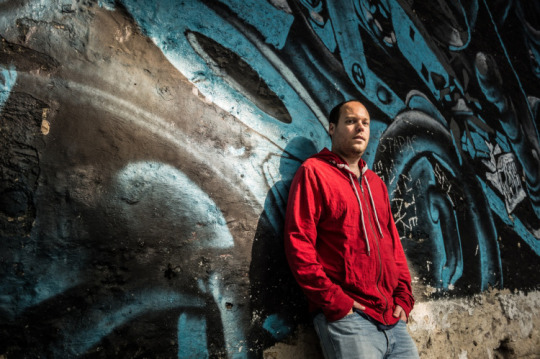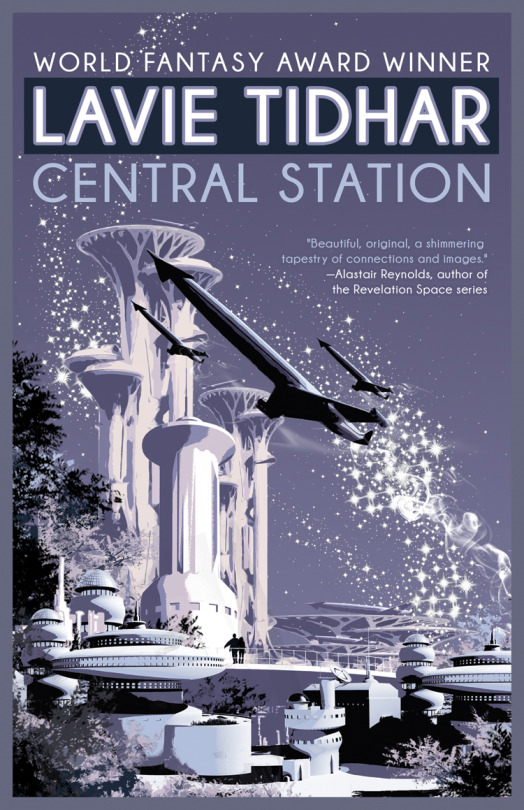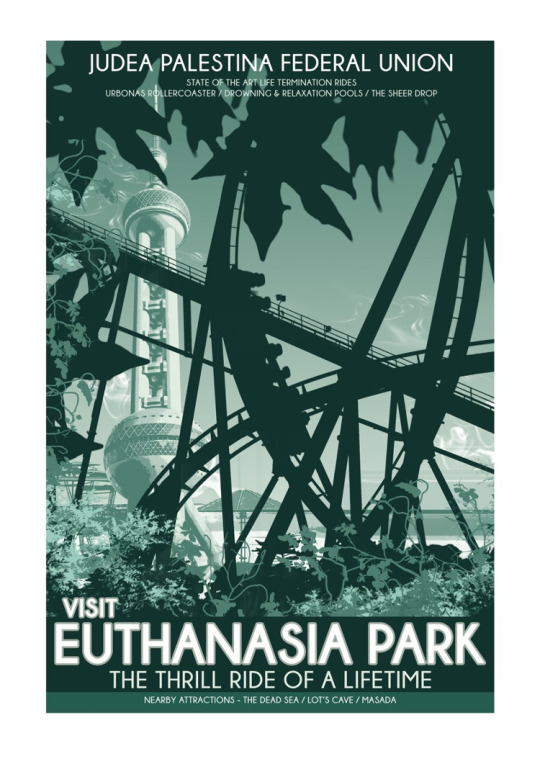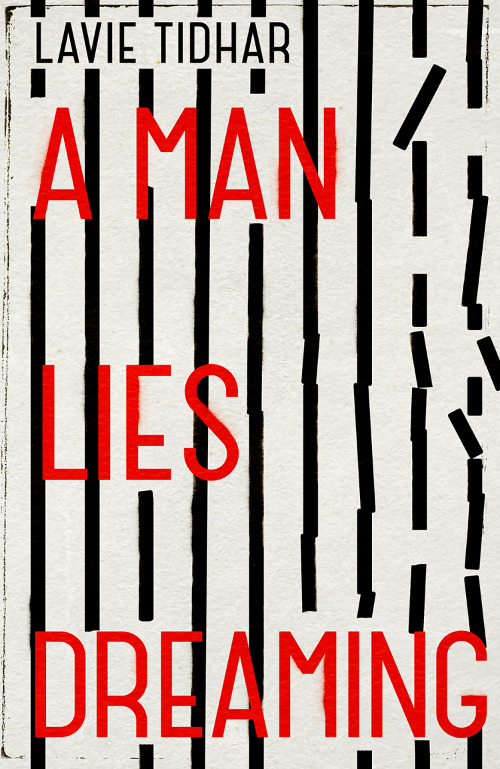CENTRAL STATION is perhaps the most ambitious Israeli science fiction book ever written
With its rapidly approaching publication, Lavie Tidhar’s CENTRAL STATION warrants another review and a pair of interviews with the author.

Photo: Kevin Nixon. © Future Publishing 2013.
The Israeli site הספרייה הפנטסטית praises the novel.
First and foremost, CENTRAL STATION is an Israeli science fiction book, which is surprising since Lavie Tidhar does not live in Israel for many years. But the spirit of Tel Aviv and its surrounding area is still very familiar in his writing. Central Station is perhaps the most ambitious Israeli science fiction book ever written, and can even be compared to Dan Simmons’s HYPERION CANTOS.

This is not a book for the casual reader, but whomever decides to stick with it, will enjoy it immensely. Its plot would have made Aristotle pull his hair out. It is not linear and requires the reader’s constant concentration. It does not have a single or a couple of protagonists, but a myriad of characters, and there is no major conflict. What it does have is have is fascinating view into a piece of life in a futuristic version of Tel Aviv, as a city which has forgotten its essence in an Earth which is no longer the center of creation, in a universe which in turn contains much more. And maybe the real protagonist of this novel is the central station, a tall monument like the Eiffel Tower, always visible in the corner of one’s eye, but standing tall and ugly like the center of a Ferris wheel, with people around it connected to it like spokes, trying to hide and get away from it, but never really managing to exit its borders and leave the small world they have created, or even to gather up the power of will required to do it. Like a dark reflection of our time, a place which shows the people residing in it that they can “check out” in order to go anywhere they wish, but they can never leave.
SHELF AWARENESS interviews Tidhar.
On your nightstand now:
My nightstand just tends to be an app on my phone, these days, and it’s mostly loaded up with ARCs I get sent. But at the moment, I’m still trying to finish Hilary Mantel’s Wolf Hall, and I’ve got the collected H.P. Lovecraft, who I became interested in over the past year, so I’ve been dipping in and out of that. Other than that, it tends to be a bunch of assorted research books from finished and upcoming novels: Timothy W. Ryback’s Hitler’s Private Library; Anthony Boucher’s obscure roman à clef mystery, Rocket to the Morgue; John Carter’s Sex and Rockets: The Occult World of Jack Parsons; and a stack of volumes on Islamic history, which I haven’t dipped into yet.
Favorite book when you were a child:
Tove Jansson’s Moominland Midwinter (in the Hebrew translation). I love all the Moomin books but this one in particular stayed with me.
But, too many books, really. I think I practically lived in the library when I was a child.
Your top five authors:
The writers who most influenced me (for good or bad) are probably Philip K. Dick, Raymond Chandler, Cordwainer Smith (the pen name of Paul Linebarger, who was an intelligence specialist and the godson of Sun Yat-sen and wrote the most extraordinary and peculiar science fiction stories). Tim Powers–I still remember discovering him for the first time and being so blown away. T.S. Eliot.

As does John DeNardo for KIRKUS.
Q: At the same time that you were exploring humanity’s dark past in A MAN LIES DREAMING, you were envisioning a culturally diverse future in a multitude of short fiction stories about life revolving around a space port on Earth after the diaspora. CENTRAL STATION, which collects those stories, is due out in May. How would you characterize that future?
Lavie Tidhar: Yes, that’s true! Though I have to say, my intention was always that CENTRAL STATION would be a novel, just that it’s a more of a mosaic novel. But the individual pieces were always meant to add up to a larger whole. But you’re right, that I think of it as a pretty hopeful sort of future. It’s a livable future. I wanted to write about ordinary people, with the trappings of this futuristic world kind of just serving as a background. Much like our own present is so different to the past, but we, ourselves, haven’t really changed much at all. So it was very interesting to explore that world, which is rooted very much in our own world – I started writing it when I was living in Tel Aviv, around 2010, so it’s very firmly rooted in real geography and people.
Q: What themes do you explore in the CENTRAL STATION stories?
Lavie Tidhar: I think, one thing that interested me, is the idea of the family, the extended family in particular. I think most science fiction, most Western science fiction, you know, it’s about the individual. And if you do have families, they’re very nuclear families, you know, or they’re entirely absent. And I wanted to talk about that sense of being a part of this really large, really involved family, and the obligations and expectations that go with that – whether you particularly want them or not! But that’s really, I think, at the core of the novel, it’s the question of family, of relationships.

For more info about CENTRAL STATION, visit the Tachyon page.
Cover and poster by Sarah Anne Langton
